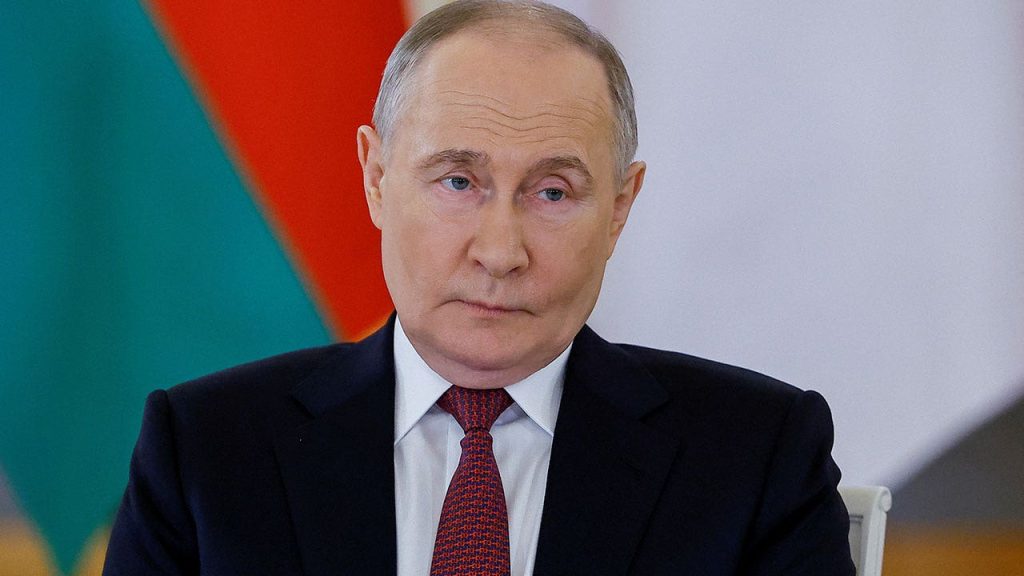Four Russian sources have stated that Russian President Vladimir Putin is open to a ceasefire in the ongoing conflict in Ukraine, but is also prepared to continue fighting for as long as necessary. Putin’s spokesperson Dmitry Peskov emphasized that Russia does not want an ‘eternal war.’ However, Ukrainian Foreign Minister Dmytro Kuleba has accused Putin of sending out ‘phony signals’ to disrupt peace talks. The sources suggest that Putin is willing to halt the war based on the current battlefield lines, but will fight on if Ukraine and the West do not respond.
Russian President Vladimir Putin has expressed his readiness to freeze the war in Ukraine and re-engage in peace talks. Putin has voiced frustration with Western-backed efforts to derail negotiations and Ukrainian President Volodymyr Zelenskiy’s refusal to consider talks. The appointment of economist Andrei Belousov as Russia’s defense minister was seen as a move to put the Russian economy on a war footing, but sources indicate that Putin would prefer to capitalize on Russia’s current momentum and end the conflict. The national call-up of troops in Russia in September 2022 caused a decline in Putin’s popularity, and he is reluctant to undertake a new mobilization.
Despite the prospect of a ceasefire, peace talks seem unlikely at present. Zelenskiy has maintained that Ukraine will not accept peace on Putin’s terms and aims to retake lost territory. Putin has expressed hopes to sell a victory to his people based on the gains in the war so far. However, both Ukraine and Russia fear that the other side will use any ceasefire to re-arm. The United States and European allies are providing military aid to Ukraine, while Russia is counting on its large population to sustain its superior manpower in the conflict.
Putin is insistent on locking in any battlefield gains in a potential deal, with some sources suggesting that he would be willing to freeze the conflict along the current front lines. This would leave Russia in control of significant portions of four Ukrainian regions, as formally incorporated in 2022. Putin has expressed concerns about the vast number of battle-hardened veterans returning to Russia post-war and the challenges posed by their reintegration. Despite his willingness to engage in peace talks, there remains a possibility that Putin will continue to seek additional territory in Ukraine.
In the absence of a ceasefire, Putin’s strategy is focused on securing as much territory as possible to pressure Ukraine and exploit opportunities to acquire more land. Russian forces control a significant portion of Ukraine, and Putin is counting on Russia’s population advantage to maintain manpower without a national mobilization effort. U.S. and European leaders have pledged support to Ukraine until its security is safeguarded, and efforts are being made to accelerate weapons deliveries. Ongoing concerns about nuclear escalation and the growing risk of conflict with the West persist.
The upcoming Swiss peace summit in June aims to garner international support for ending the war in Ukraine. Putin’s attendance is contentious, with Ukraine and Switzerland backing his exclusion. Moscow contends that the talks are not credible without Russian participation. A key challenge remains the trust deficit between the parties involved, with both sides skeptical about the intentions and motives of the other. The geopolitical dynamics surrounding the conflict continue to evolve as efforts to reach a resolution persist amidst ongoing hostilities.


